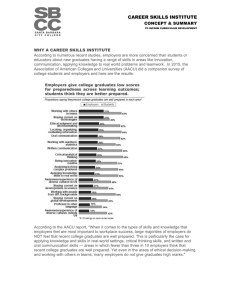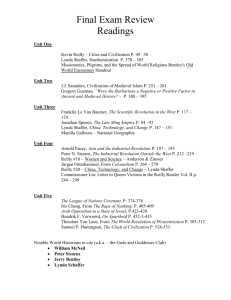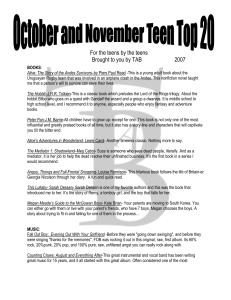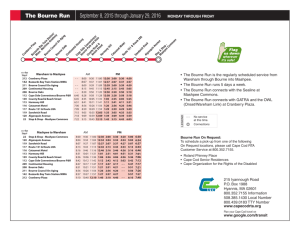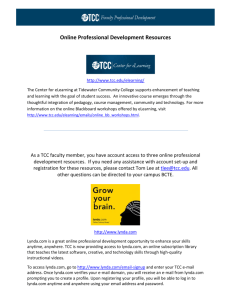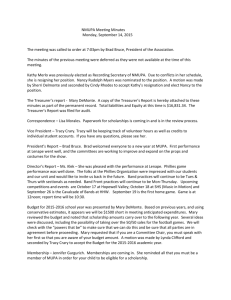Research Proposal Presentation
advertisement
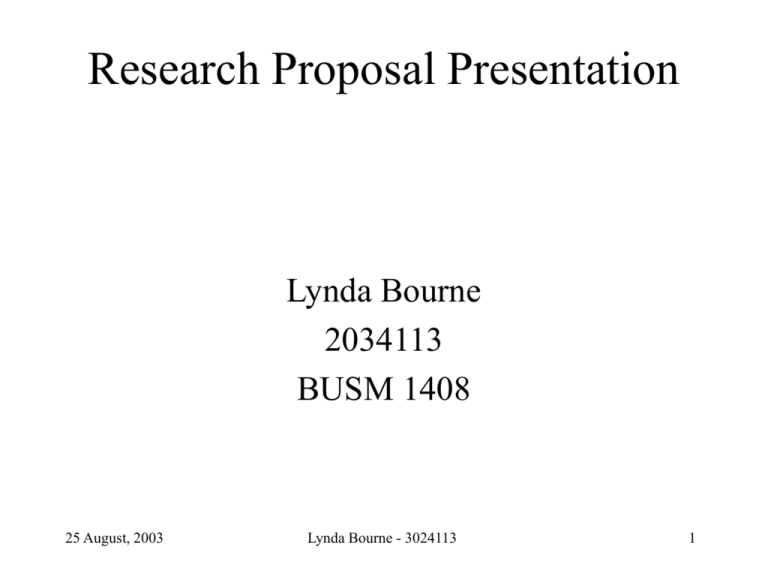
Research Proposal Presentation Lynda Bourne 2034113 BUSM 1408 25 August, 2003 Lynda Bourne - 3024113 1 Supporting Project Managers in building sustainable relationships for project success. 25 August, 2003 Lynda Bourne - 3024113 2 In the current project environment... •Many team members –will only be part of the team as long as their specialist skills are required –come from different organisational backgrounds and cultures –may be geographically dispersed •A small core team will be responsible for project delivery •Organisations change constantly - a project’s stakeholder set will change: –Senior Managers change roles or change companies –The ability of stakeholders to influence the project may increase or decrease •The Project Manager is still accountable for successful delivery of the project; there are good reasons for project responsibilities to be shared: –Sharing workload and coaching of less experienced members –Knowledge Management This project will investigate the effectiveness of a tool - the Stakeholder Circle to provide support for the PM and project team in managing the project’s stakeholders. 25 August, 2003 Lynda Bourne - 3024113 3 Topic description • • • • • Background Statement of problem Objectives Research question Research Method – approach – sampling strategy – timeframe • Scope and location of research 25 August, 2003 Lynda Bourne - 3024113 4 Background • Managing relationships for project success is acknowledged as being as important as the ‘hard’ skills of managing schedules and budgets • The Project Manager’s accountabilities include relationship management (Stakeholder Management) • A project’s stakeholder set does not remain static throughout the project and needs to be identified, tracked and managed appropriately throughout the project lifecycle • In large organisations today, many projects have team members from many different organisations. Teams consist of staff, contractors, and staff of other organisations • As specialists move in and out of projects, there is a small core team that manages throughout the lifecycle. • This core team should share responsibility for Stakeholder Management: workload management, coaching, knowledge management, personality matching • To facilitate this sharing it is essential to have a solid process and the support of a tool. 25 August, 2003 Lynda Bourne - 3024113 5 The Problem • How can a project manager ensure all stakeholders are identified and assessed for importance to the project • How can the PM fulfil responsibilities in: – – – – inspired leadership relationship (stakeholder) management knowledge management HR management 25 August, 2003 Lynda Bourne - 3024113 6 Objectives Main objective: – To identify ways to improve the building and maintaining of sustainable project relationships for project success. Sub-objectives: – 1. To determine the effectiveness of a visualisation tool for stakeholder management. 25 August, 2003 Lynda Bourne - 3024113 7 Research questions 1. How effective is the use of a visualisation tool for project stakeholder management? 25 August, 2003 Lynda Bourne - 3024113 8 Research Methods - approach • Deductive Approach – testing theory through observation and data • Exploratory Study – Purposive, self-selection sampling • Longitudinal – projects must be around 6 months in length • In-depth interviews at beginning and end with PM • Group interviews with key team members • Self-completion diaries – to track issues and changes in stakeholder relationships with project 25 August, 2003 Lynda Bourne - 3024113 9 Research Methods - sampling strategy • Through Project Management professional bodies, personal and business I will attempt to identify target companies and project to participate in the research.These project must have the following characteristics: – – – A six-month lifecycle timeframe Specialisation – specialist are only part of the team for the input of their specialist advice Have a core team of 3 –5 members. • Select five (5) projects representing a selection of industries and project types from the following sectors: – – – Service Organisations using complex infrastructure including IT solutions as the main mechanism for delivery of that service (banks, telcos) Government (bureaucracy) Large traditional engineering (eg Ships, Bridges) 25 August, 2003 Lynda Bourne - 3024113 10 Research Methods - Timeframe Day 1 Day 344 Research Project Develop Research Proposal and obtain approval Develop and test questions Develop and test tool Obtain participants Administer instrument(s) Ongoing data collection and analysis Final collection of data Research Report 25 August, 2003 Lynda Bourne - 3024113 11 Issues • Ethical issues – Privacy – Intellectual Property – Confidentiality • Other issues – Continuous participation 25 August, 2003 Lynda Bourne - 3024113 12
